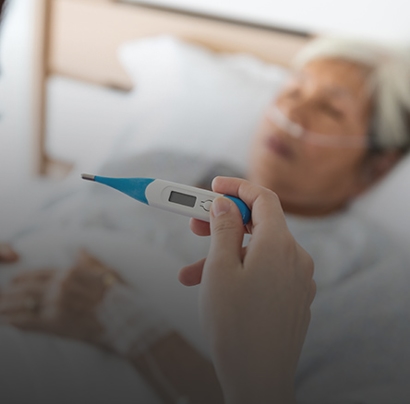
Nursing home residents are a high-risk population for infection due to their age and underlying health conditions. They can often be susceptible to severe injuries and tend to have already weakened immune systems, which can expose their bodies to harmful bacteria, germs, and viruses. Many nursing home residents may also lack the mobility required to properly clean themselves.
These reasons are why it is especially important for nursing homes to ensure their residents maintain proper personal hygiene, even when they require assistance from staff, and to ensure that residents’ rooms and common spaces are sanitary.
The truth of the matter is, however, that nursing home corporations rarely employ enough staff to properly tend to their patients and they sometimes fail to follow comprehensive infection control guidelines, which are intended to prevent infections and slow the spread of harmful diseases.
The primary focus in infection cases is on a nursing home that fails to diagnose and treat an infection, which then becomes life-threatening and deadly. For example, some residents get urinary tract infections (“UTIs”) through no fault of the facility, but the nursing home staff fails to adequately assess and monitor the resident for worsening. This can lead to a deadly sepsis infection and death, especially in the elderly.
Nursing homes are expected to help residents maintain proper hygiene, screen staff for infectious diseases, maintain clean and sanitary facilities, and prevent negligent practices that could lead to infection. They should also notify a resident’s legally authorized representative of any changes in the patient’s health. Nursing homes do not always report infections or seek medical treatment for sick residents, and this too is a serious form of patient neglect.
If a nursing home contributed to your loved one’s infection by neglecting them or failing to notify you of their condition, the nursing home may be responsible for any economic or non-economic damages that you and your loved one sustained. For over two decades, I have committed to helping nursing home residents and their families pursue infection lawsuits in North Carolina, Georgia, Kentucky, and Tennessee.
COVID-19 sadly showed the world just how quickly infectious diseases can spread in nursing home facilities. Before the pandemic, health professionals estimated that hundreds of thousands, and possibly millions, of nursing home patients in the United States contracted infections each year, but during the pandemic well over 200,000 patients died from coronavirus alone.
People come and go in nursing home facilities every day, including staff, doctors, patients, and visitors. This exposes the residents to all sorts of bacteria and germs brought in from outside of the nursing home.
It is also the case that poor nursing home practices make matters considerably worse. Most states, including North Carolina, require nursing homes to establish infection prevention and control guidelines to become licensed. However, in addition to not helping patients with basic personal hygiene, nursing homes frequently fail to live up to their own infection prevention and control standards.
Being understaffed is not a good excuse for inadequate hygiene and poor sanitation, because nursing home administrators are often required to remain understaffed by their own ownership, sometimes to increase profits.
Furthermore, neglectful nursing home practices by overworked staff members can contribute to infection. For example, some nursing homes regularly leave patients sitting or lying in one position for long periods of time, which can lead to bedsores. Bedsores are exposed wounds, or ulcers, that can go past the skin and all the way to the bone. When left untreated, these severe bedsores can lead to infectious diseases, and can potentially cause sepsis and eventually death.
Nursing home residents with limited mobility are sometimes ignored and left to wear soiled clothing for long periods, up to several hours, which can cause skin irritations, especially among elder patients. Some residents may respond to this neglect by drinking less or trying to hold their bladder, both of which can cause urinary tract issues. All these situations can cause infection to set in.
"*" indicates required fields